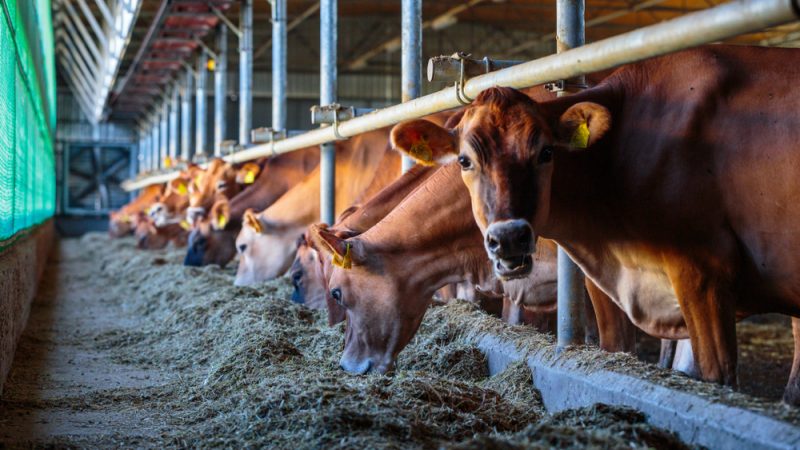A recent op-ed by Compassion in World Farming and European Institute for Animal Law & Policy focuses on a study commissioned by Copa and Cogeca, the EU lead farming organisation, on the social and economic impacts of the phasing out of certain cages in animal agriculture.
This is a demand that animal welfare NGOs have been making for several years, notably through the European Citizens' Initiative (ECI) “End the Cage Age". According to the article, “Bogus agricultural industry research threatens to keep animals caged”. The article written by the two NGOs makes unfounded allegations, some of them serious, and distorts a debate, which requires nuance. First, the facts.
It is true that Copa and Cogeca have commissioned an impact study from three independent research bodies with a simple question. If we were to do away with certain cages in pig and poultry farms, what would be the social and economic consequences for the sector? We asked this question for a simple reason; no study has ever been carried out on the consequences of these potential change, either by the European institutions or by any of the organisations promoting this concept.
The study concludes that the economic and social impact of a ban of certain cages for pig and poultry depends on the time considered for transition: the shorter the time given to farmers, the more difficult it will be to make the necessary investments, thereby increasing the impact. Among the consequences, the study shows that production in Europe could be affected to a greater or lesser extent, resulting in an increase in the proportion of imports and higher costs for producers and consumers.
The concentration effects, relocation of farms and production in countries with lower animal welfare standards should also concern those who advocate the “end of cages” in Europe, at the very least as regards the transition period. On the basis of the study, an in-depth discussion could take place with a view to finding a reasonable compromise. This is essential not only a question of cages, but also for the whole debate on animal welfare, as a revision of the legislation is coming up in October 2023.
Critique not related to study
However, it was another option that was considered by the authors. Since the launch of the Farm to Fork strategy, we have seen the same pattern being repeated: first, constructing a caricatured media position that is not that of Copa and Cogeca, then saying that "the agro-industry" wants to “frighten decisions makers” and then bashing this invented position; completely obscuring the reality and complexity of the debates.
In fact, their article bears so little relation to the content of the study commissioned by Copa and Cogeca that one wonders whether it was actually read by its critics. One of the key arguments brought forward is that the impact study commissioned contradicts EFSA’s scientific findings. But attempting to draw a parallel between the two simply makes no sense.
In fact, EFSA’s opinions were answering a completely different question concerning a broad spectrum of welfare of pigs and poultry in the full productions cycle. EFSA did not look into the socio-economic impacts of removing two very precise and specific types of cages: farrowing crates for sows and enriched cages for laying hens.
The rest of the argument remains just as confused. According to the authors, “...there are other jurisdictions in the world that have banned cages, and no economic fallout has ensued”. This is factually wrong and illustrated by inaccurate examples. How can one draw economic conclusions of a ban in Israel envisioned for 2029?
Consequences in the EU
The authors could have considered other figures, by having a look at what has happened in the EU. After a national ban, Swedish pig production decreased by 30%. In France, the transition from cage production to floor production for hens resulted in a 25% drop in productivity. Hence the importance of evaluating the impacts.
Worse still, the authors insinuate that the Hungarian research centre that took part in the study was under the thumb of the country's government, forgetting in passing that this study was carried out by three research centres without any preconceived ideas and in complete independence. For organisations that call on science to be listened to on a daily basis, listening is apparently selective.
Finally, we do not know who the authors of this article are referring to when they speak of legal action against the movement to abolish cages. Copa and Cogeca have never taken any action of this kind against any organisation or NGO, and we deeply believe in dialogue and the exchange of ideas like this one.
Copa and Cogeca are not opposed to phasing out cages in agriculture provided that one tells us first which sort of cages and second, discusses the timeframe for transition and the financial support to do so. What the study we commissioned demonstrates is that the success and impact of such a transition depends on the time considered for the transition, the consistency of the regulatory framework (particularly with regards to exports) and public financial support which is commensurate with the challenge.
By Miguel Ángel Higuera and Pekka Pesonen
Higuera is a veterinarian from the Complutense University of Madrid. He is currently the director of the National Association of Pig Producers (ANPROGAPOR) and the Chair of the Animal Health and Welfare Working Party at Copa Cogeca.
Pesonen is the Secretary General of Copa, representing European farmers, and Cogeca, representing European agri-cooperatives. Previously, he worked as State Secretary for the Finnish Ministry for Agriculture and Forestry.


